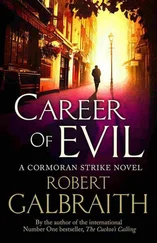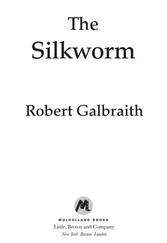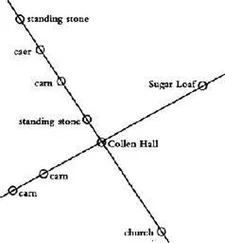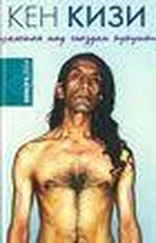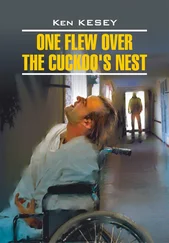Strike smoked, lost in thought, until the daylight in his office began to soften and dim. Then, at last, he struggled up on his one foot and, using the doorknob and the dado rail on the wall beyond the glass door to steady himself, hopped out to examine the boxes still stacked on the landing outside his office. At the bottom of one of them he found those dermatological products designed to assuage the burning and prickling in the end of his stump, and set to work to try and repair the damage first done by the long walk across London with his kitbag over his shoulder.
It was lighter now than it had been at eight o’clock two weeks ago; still daylight when Strike was seated, for the second time in ten days, in Wong Kei, the tall, white-fronted Chinese restaurant with a window view of an arcade center called Play to Win. It had been extremely painful to reattach the prosthetic leg, and still more to walk down Charing Cross Road on it, but he had disdained the use of the gray metal sticks he had also found in the box, relics of his release from Selly Oak Hospital.
While Strike ate Singapore noodles one-handed, he examined Lula Landry’s laptop, which lay open on the table, beside his beer. The dark pink computer casing was patterned with cherry blossom. It did not occur to Strike that he presented an incongruous appearance to the world as he hunched, large and hairy, over the prettified, pink and palpably feminine device, but the sight had drawn smirks from two of the black-T-shirted waiters.
“How’s tricks, Federico?” asked a pallid, straggly-haired young man at half past eight. The newcomer, who dropped into the seat opposite Strike, wore jeans, a psychedelic T-shirt, Converse sneakers, and a leather bag slung diagonally across his chest.
“Been worse,” grunted Strike. “How’re you? Want a drink?”
“Yeah, I’ll have a lager.”
Strike ordered the drink for his guest, whom he was accustomed, for long-forgotten reasons, to call Spanner. Spanner had a first-class degree in computer science, and was much better paid than his clothing suggested.
“I’m not that hungry, I had a burger after work,” Spanner said, looking down the menu. “I could do a soup. Wonton soup, please,” he added to the waiter. “Interesting choice of laptop, Fed.”
“It’s not mine,” said Strike.
“It’s the job, is it?”
“Yeah.”
Strike slid the computer around to face Spanner, who surveyed the device with the mixture of interest and disparagement characteristic of those to whom technology is no necessary evil, but the stuff of life.
“Junk,” said Spanner cheerfully. “Where’ve you been hiding yourself, Fed? People’ve been worried.”
“Nice of them,” said Strike, through a mouthful of noodles. “No need, though.”
“I was round Nick and Ilsa’s coupla nights ago and you were the only topic of conversation. They were saying you’ve gone underground. Oh, cheers,” he said, as his soup arrived. “Yeah, they’ve been ringing your flat and they keep getting the answering machine. Ilsa reckons it’s woman trouble.”
It now occurred to Strike that the best way to inform his friends of his ruptured engagement might be through the medium of the unconcerned Spanner. The younger brother of one of Strike’s old friends, Spanner was largely ignorant of, and indifferent to, the long and tortured history of Strike and Charlotte. Given that it was face-to-face sympathy and postmortems that Strike wanted to avoid, and that he had no intention of pretending forever that he and Charlotte had not split up, he agreed that Ilsa had correctly divined his main trouble, and that it would be better if his friends avoided calling Charlotte’s flat henceforth.
“Bummer,” said Spanner, and then, with the incuriosity towards human pain versus technological challenges that was characteristic of him, he pointed a spatulate fingertip at the Dell and asked: “What d’you want doing with this, then?”
“The police have already had a look at it,” said Strike, lowering his voice even though he and Spanner were the only people nearby not speaking Cantonese, “but I want a second opinion.”
“Police’ve got good techie people. I doubt I’m gonna find anything they haven’t.”
“They might not have been looking for the right stuff,” said Strike, “and they might not’ve realized what it meant even if they found it. They seemed mostly interested in her recent emails, and I’ve already seen them.”
“What am I looking for, then?”
“All activity on or leading up to the eighth of January. The most recent internet searches, stuff like that. I haven’t got the password, and I’d rather not go back to the police and ask unless I have to.”
“Shouldn’t be a problem,” said Spanner. He was not writing these instructions down, but typing them on to his mobile phone; Spanner was ten years younger than Strike, and he rarely wielded a pen by choice. “Who’s it belong to, anyway?”
When Strike told him, Spanner said:
“The model? Whoa.”
But Spanner’s interest in human beings, even when dead or famous, was still secondary to his fondness for rare comics, technological innovation and bands of which Strike had never heard. After eating several spoonfuls of soup, Spanner broke the silence to inquire brightly how much Strike was planning to pay him for the work.
When Spanner had left with the pink laptop under his arm, Strike limped back to his office. He washed the end of his right leg carefully that night and then applied cream to the irritated and inflamed scar tissue. For the first time in many months, he took painkillers before easing himself into his sleeping bag. Lying there waiting for the raw ache to deaden, he wondered whether he ought to make an appointment to see the consultant in rehabilitation medicine under whose care he was supposed to fall. The symptoms of choke syndrome, the nemesis of amputees, had been described to him repeatedly: suppurating skin and swelling. He was wondering whether he might be showing the early signs, but he dreaded the prospect of returning to corridors stinking of disinfectant; of doctors with their detached interest in this one small mutilated portion of his body; of further minute adjustments to the prosthesis necessitating still more visits to that white-coated, confined world he had hoped he had left forever. He feared advice to rest the leg, to desist from normal ambulation; a forced return to crutches, the stares of passersby at his pinned-up trouser leg and the shrill inquiries of small children.
His mobile, charging as usual on the floor beside the camp bed, made the buzzing noise that announced the arrival of a text. Glad for any minor distraction from his throbbing leg, Strike groped in the dark and picked up the telephone from the floor.
Please could you give me a quick call when convenient? Charlotte
Strike did not believe in clairvoyance or psychic ability, yet his immediate irrational thought was that Charlotte had somehow sensed what he had just told Spanner; that he had twitched the taut, invisible rope still binding them, by placing their breakup on an official footing.
He stared at the message as though it was her face, as though he could read her expression on the tiny gray screen.
Please. (I know you don’t have to: I’m asking you to, nicely.) A quick call. (I have a legitimate reason for desiring speech with you, so we can do it swiftly and easily; no rows.) When convenient. (I do you the courtesy of assuming that you have a busy life without me.)
Or, perhaps: Please. (To refuse is to be a bastard, Strike, and you’ve hurt me enough.) A quick call. (I know you’re expecting a scene; well, don’t worry, that last one, when you were such an unbelievable shit, has finished me with you forever.) When convenient. (Because, let’s be honest, I always had to slot in around the army and every other damn thing that came first.)
Читать дальше

